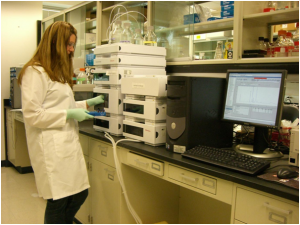When a research group or facility tests medications or treatments for various illnesses, they have to be approved by the FDA before they can be regulated and prescribed. The use of these drugs and procedures usually occurs after long clinical trials and TQT Studies as required. These can be provided by companies such as www.richmondpharmacology.com/specialist-services/tqt
Here are the basics of that process, from the inception of the idea to the actual approval.

Step by step
The first step toward approval is designing the clinical trial, which includes outlining the process, choosing participants and deciding how to collect the data and other information pertinent to the research study. Researchers must also submit their paperwork and findings to the FDA once they are ready to begin human trials with the drug or treatment.
The FDA is often available for help with this entire process, from answering questions to offering assistance with the paperwork. Now the FDA will review the information and decide whether they want to offer approval. The approval team consists of various experts, including pharmacists, chemists, and a statistician. This allows the team to look at all angles of the process.
Setting up your clinical trial
If you have a drug plan and want to organize your own trial, clinical staffing is important. You want experts on your research team so that you can stand by your results when they are presented to the FDA. Often, researchers will start with animal trials to determine whether the medication is safe for humans.
Once you’re ready to progress to human studies, starting small is a good idea. As you find out how the medication works, you can replicate your findings in increasingly larger groups of human participants. The length of your study often gets longer as you go so that you can study the long-term effects of the drug.
When you need help with your trial, it is best to use professional companies such as the one mentioned earlier in the article. You’ll have access to research associates, project managers, data managers and clinical trial assistants that can get you through the entire process from start to finish.
Running a clinical trial is a good idea if you have a potentially life-saving drug, but it won’t happen overnight. Be prepared for many years of testing and a lot of paperwork before the FDA approves your medication. All that hard work will be worth the effort once your drug hits pharmacy shelves and starts helping people.

